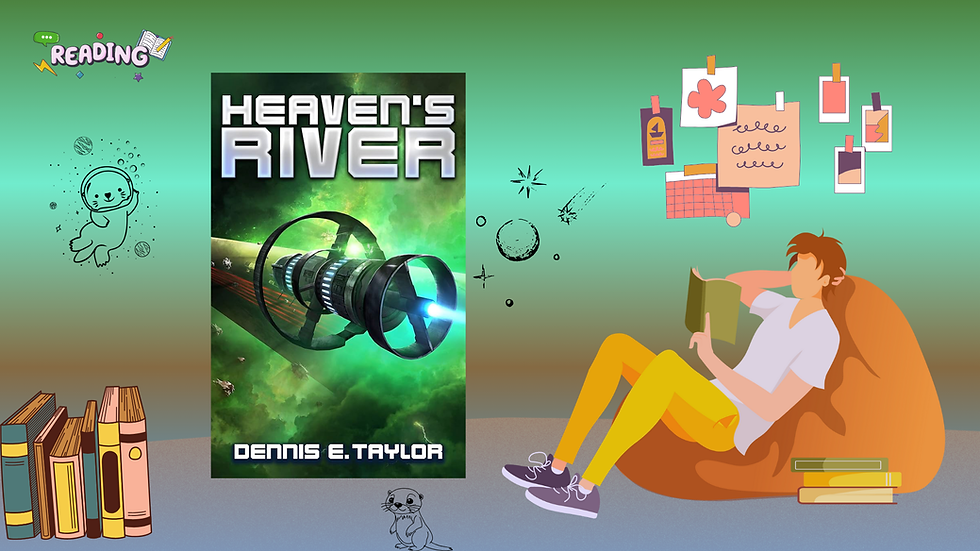Rating: 4/5 ⭐️

When I finished the third book in the Bobiverse series, All These Worlds, I believed the saga had reached its natural conclusion. It wrapped up the storylines neatly, leaving the Bobiverse in a satisfying place. So, when I stumbled upon Heaven's River, the fourth installment, on Audible, I was skeptical. Was it really necessary to revisit this universe? Initially hesitant, I finally decided to give it a shot during my December holidays—and I’m glad I did.
A Return to the Bobiverse
Dennis E. Taylor seamlessly pulls readers (or listeners) back into the Bobiverse with Heaven’s River. The story centers on a personal and intriguing quest: finding Bender, one of the original Bobs who has mysteriously vanished. This smaller-scale narrative is a refreshing shift from the galactic conflicts of earlier books, allowing for a more intimate exploration of themes like identity, evolution, and replicative drift—the phenomenon where Bob clones develop distinct personalities over time. The implications of this drift are fascinating and add depth to the ever-expanding Bobiverse.
One of the highlights of Heaven’s River is its introduction of a new alien species: the Quinlans. Taylor excels at creating believable alien societies, and the Quinlans are no exception. Their otter-like appearance (as I imagined them) and unique culture are both endearing and complex. The story delves into their society with meticulous detail, offering thought-provoking commentary on how outsiders interact with alien civilizations. This worldbuilding is one of Taylor’s strengths, and it shines brightly here.
The setting itself—a massive topopolis (a ribbon-like megastructure)—is another standout feature. It’s a fascinating concept that serves as both a backdrop for exploration and a metaphor for the evolving Bobiverse.
As with previous installments, Ray Porter’s narration elevates the audiobook experience. His ability to bring each Bob (and their increasingly diverse personalities) to life is remarkable. Porter’s performance adds humor, tension, and emotional depth to the story, making it even more immersive.
What I appreciated most about Heaven's River was its focus on character development and philosophical questions rather than action-packed sequences. The exploration of replicative drift raises intriguing questions about identity and individuality in a post-human context. Additionally, Taylor’s humor and pop-culture references remain intact, adding levity to complex discussions.
However, while the book is enjoyable, it does feel longer than necessary at times. Some sections—particularly involving discovery and analysis—dragged slightly, which might test the patience of some readers. Still, these moments didn’t detract significantly from my overall enjoyment.
Heaven’s River proves that there’s still plenty of life left in the Bobiverse. While it may not have been strictly “necessary,” it offers fresh ideas, compelling characters, and a chance to see how this universe continues to evolve. For fans of the series, it’s a welcome return; for newcomers, it might feel dense without prior context.
I’d rate this book a solid 4/5 for its engaging story, excellent narration by Ray Porter, and thought-provoking themes. It left me curious about where Taylor will take the Bobiverse next—and hopeful that future installments will continue to balance innovation with heart.
Comments